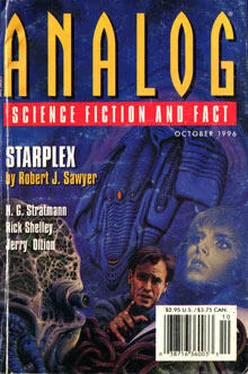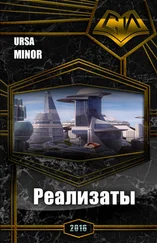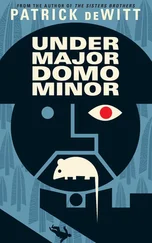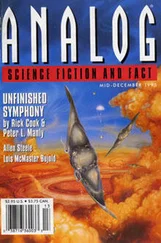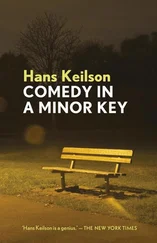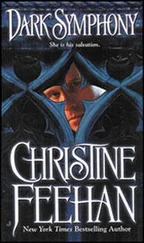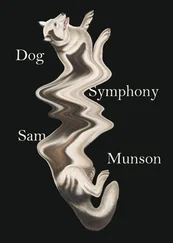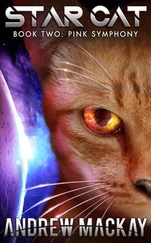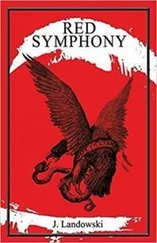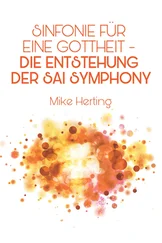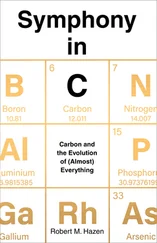H. Stratmann - Symphony in a Minor Key
Здесь есть возможность читать онлайн «H. Stratmann - Symphony in a Minor Key» весь текст электронной книги совершенно бесплатно (целиком полную версию без сокращений). В некоторых случаях можно слушать аудио, скачать через торрент в формате fb2 и присутствует краткое содержание. Год выпуска: 1996, Издательство: Dell Magazines, Жанр: Альтернативная история, на английском языке. Описание произведения, (предисловие) а так же отзывы посетителей доступны на портале библиотеки ЛибКат.
- Название:Symphony in a Minor Key
- Автор:
- Издательство:Dell Magazines
- Жанр:
- Год:1996
- ISBN:нет данных
- Рейтинг книги:5 / 5. Голосов: 1
-
Избранное:Добавить в избранное
- Отзывы:
-
Ваша оценка:
- 100
- 1
- 2
- 3
- 4
- 5
Symphony in a Minor Key: краткое содержание, описание и аннотация
Предлагаем к чтению аннотацию, описание, краткое содержание или предисловие (зависит от того, что написал сам автор книги «Symphony in a Minor Key»). Если вы не нашли необходимую информацию о книге — напишите в комментариях, мы постараемся отыскать её.
Symphony in a Minor Key — читать онлайн бесплатно полную книгу (весь текст) целиком
Ниже представлен текст книги, разбитый по страницам. Система сохранения места последней прочитанной страницы, позволяет с удобством читать онлайн бесплатно книгу «Symphony in a Minor Key», без необходимости каждый раз заново искать на чём Вы остановились. Поставьте закладку, и сможете в любой момент перейти на страницу, на которой закончили чтение.
Интервал:
Закладка:
Symphony in a Minor Key
by H. G. Stratmann

Illustration by John Stevens
Introduction
As he emerged from the alley the front of the building on his right exploded. Knocked down by the blast, Robbins staggered back to his feet, unable to comprehend what he saw.
The city was deserted and in ruins. Most of the nearby buildings were at least partly destroyed. A few were on fire, spewing acrid black smoke into the cold air. The wide street he stood on was pockmarked with craters and littered with broken wood, glass, and the tom bodies of dead animals. In the distance he heard unintelligible cries and screams, sharp firecracker-like snaps, and whistling sounds like descending skyrockets followed by thunderous explosions.
Suddenly a horse-drawn wagon whipped around the nearby street comer and bore down on him. Both the driver and the gray-faced woman at his side looked terrified as he lashed the horses to greater speed. The wagon grazed Robbins’s arm as he jumped aside just in time.
Before he could catch his breath, a portly red-faced man puffed around the same corner and sprinted toward him. As he ran past, Robbins grabbed the stranger’s arm and shouted at him in German, “What is happening?”
The fat man’s eyes bulged. “Let go of me, you fool!” he screamed. “They’re right behind me, they’ll kill us all!”
Before he could ask who “they” were the man broke free and resumed his headlong flight. As Robbins started after him an arcing shriek tore through the air. Suddenly the part of the street just in front of the fleeing man exploded, flinging him backwards high into the air, arms flailing wildly, until he landed on his head with a sickening thud.
Robbins ran to him. The man lay on his back, bloodied mouth gaping wide, unmoving eyes staring up at the sky. Dead.
Then he heard more hoofbeats coming from the other end of the cobblestoned street. Recalling the dead man’s last words, he looked around for a place to hide. The closest shelter was the crater just blasted in front of him in the middle of the street. It made a shallow foxhole, deep enough to let him duck his head below street level by lying on his stomach. Ignoring the mud staining his clothes, he peeked over the edge of the crater.
Four horsemen turned the same street comer from which the wagon and the dead man had just come. They wore identical tall black woolen hats, brown shirts open at the neck, wide red sashes around their waists, and dark pants stuffed into high military boots. A long saber hung from each one’s side. Their bearded faces too seemed identical, with coarse, menacing features.
Seemingly oblivious to his hiding place or the distant thunder of cannons, they trotted their horses down the street at a leisurely pace, directly toward him. Every few meters they would stop momentarily and peer at the surrounding buildings, as if looking for someone.
Quickly Robbins ducked his head back down, heart pounding. The alley from which he’d emerged—the one containing the portal back home—was too far away. If he tried running to it, they would see him, and could cut him down with their sabers long before he reached safety.
And if he did nothing, in a few minutes they would, literally, be right on top of him.
The melody of the Russian dance from Tchaikovsky’s Nutcracker ballet flashed through his mind. He was about to be killed by—Cossacks?
Confused, desperate, Robbins closed his eyes. Like the bass part of some diabolical passacaglia, a single thought repeated itself in his mind.
What in God’s name is going on?
Exposition
“—And we have no right to play God!”
H. L. Robbins, head of the musicology section, looked anxiously at the other members of the humanities committee seated around the conference table. Then he sighed with relief. Except for Billingsley, who was grinning at her, the other Section Chiefs seemed unmoved by Brentano’s tirade.
At the head of the table, the chancellor of the Institute for Transcosmic Studies frowned at Brentano. “Thank you for your comments, Dr. Brentano. However, before we discuss whether Dr. Robbins’s proposal should be carried out, we need to establish whether it is even feasible. That’s why I’ve asked our distinguished guests from the science committee, Drs. Everett and Harrison, to come to this meeting.”
She nodded toward the elderly woman seated at her right.
Catherine Everett, Ph.D. glared back. “I gave my opinion in the report I sent to your committee.” Her eyes flashed around the table. “I assume you all read it?”
From the embarrassed looks on the faces of his colleagues, Robbins doubted any of them had been able to figure out what Everett’s report said either. He, for one, had no idea what terms like “dosed temporal loop” and “quantized timelines” meant. And as for the equations—.
The Chancellor said diplomatically, “Perhaps you could summarize your conclusions about the possible dangers of traveling back in time and changing the past.”
“No, no, no!” Everett shouted back. “There’s no danger anything we do on Transcosmic Earth can affect us! Translocating there may seem like simple time travel into the past, with all the possible paradoxes and violations of causality that implies, but it’s actually much more complicated! Anything we change there would simply replace TCE’s current history with one of a nearly infinite number of different ‘shadow histories,’ and make it the real’ one instead. But our history would stay the same!” She launched into a monologue about “temporo-quantum discontinuities” and “branching universes” that Robbins couldn’t begin to follow.
But even if he didn’t understand it, Everett must know what she was talking about. She had originated the theory of “transcosmology” that let them travel to Transcosmic Earth. Apparently, Everett and the other physicists at the Institute disagreed about what TCE was—their own Earth’s past, a “parallel” world, or something else. Whatever it was, you could “translocate” to anywhere on it within a roughly 400 year “temporal window,” stay as long as you liked, then return to “their” Earth an equal amount of time later.
Nobody he talked to seemed to know why you couldn’t travel back farther than the mid-seventeenth century, or more “recent” than 1998. Rumor was the last six decades were “off-limits” because the members of the Executive Committee who oversaw the Institute didn’t want anyone alive today to be embarrassed by anything discovered by observing their younger analogs on TCE—especially themselves. Unlike his colleagues, Robbins didn’t feel those limits hurt his work. In fact, it was because of his expertise in pre-twenty-first century Western music, whose “golden age” fell within those years, that he’d been invited to join the Institute for Transcosmic Studies.
The institute was the result of an international effort to use and regulate translocation. Its purpose was to “go back in time” on TCE and collect information and “cultural artifacts,” like music, that had been lost on their own Earth. Along with a monopoly on its use, the institute was responsible for ensuring translocation wasn’t misused. There was one rule, the “First Law of Contact,” that every member of the Institute had to obey at all cost. Anyone going to TCE was to have as little contact with the people there as possible, or do anything that might change its “past.”
Читать дальшеИнтервал:
Закладка:
Похожие книги на «Symphony in a Minor Key»
Представляем Вашему вниманию похожие книги на «Symphony in a Minor Key» списком для выбора. Мы отобрали схожую по названию и смыслу литературу в надежде предоставить читателям больше вариантов отыскать новые, интересные, ещё непрочитанные произведения.
Обсуждение, отзывы о книге «Symphony in a Minor Key» и просто собственные мнения читателей. Оставьте ваши комментарии, напишите, что Вы думаете о произведении, его смысле или главных героях. Укажите что конкретно понравилось, а что нет, и почему Вы так считаете.
